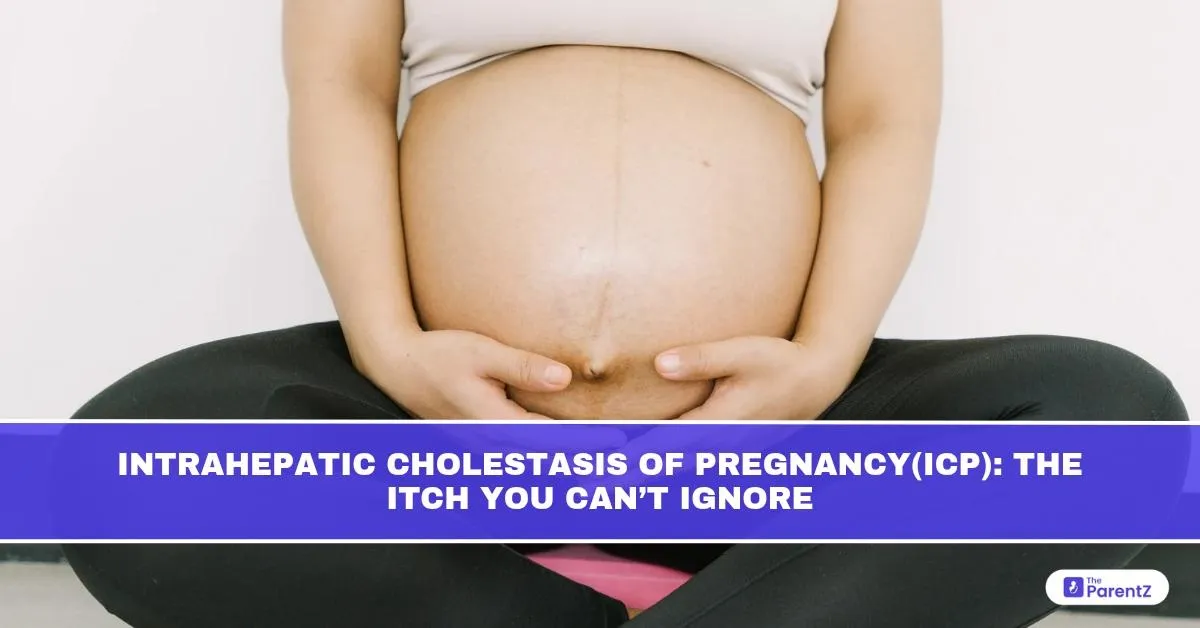When It’s More Than Just an Itch
Many expectant mothers experience itchy skin as their bellies grow, but sometimes the itch isn’t normal; it’s a warning sign.
If you’re pregnant and experiencing intense itching, especially on your hands, feet, or limbs and particularly at night, it could be a sign of a rare but serious liver condition called Intrahepatic Cholestasis of Pregnancy (ICP).
While it might seem harmless at first, ICP needs medical attention. Left untreated, it can increase the risk of complications for both mother and baby.
What Is Intrahepatic Cholestasis of Pregnancy?
ICP is a pregnancy-specific liver disorder that typically develops in the third trimester. It occurs when the normal flow of bile (a digestive fluid made by the liver) slows down or becomes blocked. This causes a build-up of bile acids in the blood, leading to itching and liver irritation.
The exact cause isn’t fully understood, but it’s believed to be influenced by:
- Hormonal changes (especially high levels of estrogen in late pregnancy)
- Genetics (family history of liver issues or ICP)
- Certain environmental factors
Symptoms: When to Be Alert
The hallmark symptom of ICP is itching without a rash and it can be intense.
Look for:
- Severe itching (often worse at night)
- Itching that starts on the palms of the hands and soles of the feet
- Dark urine and pale stools
- Fatigue, nausea, or loss of appetite
- In some cases, yellowing of the skin or eyes (jaundice)
If you’re pregnant and experiencing these symptoms, don’t ignore them or dismiss them as “normal.” Always inform your obstetrician, who can recommend specific tests to confirm or rule out ICP.
How Is ICP Diagnosed?
Diagnosis is confirmed through:
- Blood tests
- Medical history and physical symptoms
Because bile acid levels can fluctuate, your doctor may repeat the test after a few days if the first results are inconclusive but symptoms persist.
Is It Dangerous?
Yes, if left unmanaged, ICP can pose serious risks to the baby, such as:
- Preterm birth
- Fetal distress
- Meconium-stained amniotic fluid
- Stillbirth (especially when bile acids exceed 100 µmol/L)
This is why early diagnosis and close monitoring are so important.
For the mother, the symptoms usually resolve within days after delivery, and long-term liver damage is uncommon. However, recurrence in future pregnancies is likely (up to 60%).
How Is ICP Treated?
Treatment focuses on lowering bile acid levels, easing the itching, and preventing complications.
1. Medication:
The most commonly prescribed medicine is ursodeoxycholic acid (UDCA). It helps improve bile flow and reduces bile acids in the blood. It’s safe for pregnancy and often brings symptom relief within a few days.
2. Regular Monitoring:
You’ll likely have:
- Weekly blood tests
- Frequent ultrasounds to check fetal well-being
- Non-stress tests or fetal heart rate monitoring
3. Early Delivery:
Depending on your bile acid levels and how far along you are, your doctor may recommend delivering the baby early often between 36 and 37 weeks to reduce the risk of stillbirth.
4. Lifestyle Tips (supportive care):
- Cool baths or ice packs can ease itching temporarily.
- Avoid harsh soaps or heat, which can make itching worse.
- Keep your skin moisturized, though creams won’t solve the underlying cause.
What Happens After Birth?
The good news: ICP symptoms usually go away within a few days postpartum as hormone levels normalize and bile flow returns to normal.
However:
- Your doctor may recommend a liver function follow-up test around 6–12 weeks after delivery.
- If symptoms persist beyond that, further testing may be needed to rule out other liver conditions.
Will It Affect Future Pregnancies?
Yes, there is a high chance of recurrence up to 60–90% depending on your history. If you’ve had ICP once, inform your doctor early in future pregnancies so they can monitor your bile acids proactively.
Your sisters or daughters may also have a slightly increased risk, as genetic factors are involved.
Final Words: Don’t Dismiss the Itch
Pregnancy brings many changes, and it’s easy to brush off discomforts. But when the itch becomes severe, especially at night or on your hands and feet, it’s your body’s way of signaling something more. Intrahepatic Cholestasis of Pregnancy isn’t common, but it is serious.
With early diagnosis, close monitoring, and proper treatment, most women with ICP go on to deliver healthy babies safely. If something feels off, trust your instincts and talk to your doctor.
Because in pregnancy, every signal matters.





Be the first one to comment on this story.